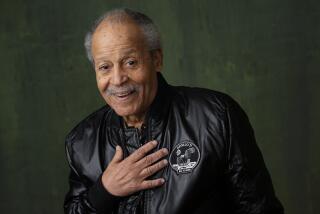Wilber B. Huston, 93; Nation’s ‘Brightest Boy’ Became Rocket Scientist
- Share via
Wilber B. Huston, 93, who was selected by Thomas Edison as the nation’s brightest boy in 1929 and later became a rocket scientist for NASA, died of respiratory failure May 25 at his home in Fountain Hills, Ariz.
In a nationwide search for young geniuses, Huston was chosen by a panel that included Edison, Henry Ford and Charles Lindbergh. His prize was four years at the Massachusetts Institute of Technology, paid for by Edison. Huston was often referred to as “America’s brightest boy,” a label that he disliked.
After working for Edison’s youngest son at a research laboratory, Huston was drafted into the Army, where he taught celestial navigation to combat-bound Army Air Forces bomber crews. By 1944, he was working at the National Advisory Committee for Aeronautics, the agency that would become NASA.
He later joined the NASA Goddard Space Flight Center in Greenbelt, Md., and was the mission director for the launching of seven weather satellites. Huston also participated in the manned space-flight program, developing a chart to let Mercury astronauts estimate their longitude based on the view out the space capsule’s window.
He retired from government work in 1974 and became a private consultant.
More to Read
Sign up for Essential California
The most important California stories and recommendations in your inbox every morning.
You may occasionally receive promotional content from the Los Angeles Times.











